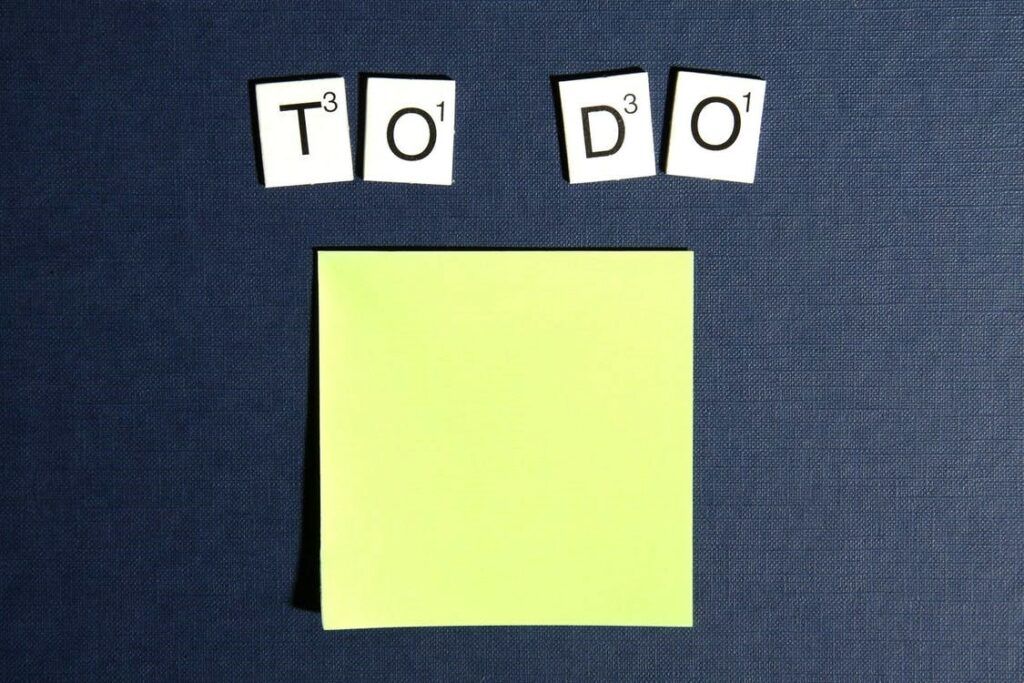If you have a home mortgage, it is likely that your mortgage is one of your largest monthly expenses. This is particularly true if you live in states where home prices are substantially higher. Examples of such states include Hawaii, California, New York, New Jersey, Massachusetts, and Washington D.C. To make matter worse, mortgages come with interest charges that make up a large part of the monthly payments. This is particularly true in the early years of the mortgage. Some argue that it is better to invest in the stock market, especially when your mortgage interest is low. However, I am convinced that it is wise to pay off your mortgage early so long as you keep certain things in mind.
You may be interested in: Investing in the Stock Market is the Same as Gambling – Or is It?

Reason Why it is Wise to Pay Off Your Mortgage Early
Over the term of the loan, chances are you will be paying much more than the cost of the home. Even with a very favorable interest rate, chances are you will most likely be paying at least 1.6-1.8x the original price of the home over the course of your mortgage payment. This is true assuming if you stick to the original payment schedule. Part of this “extra” money you pay is your mortgage interest, but it can additionally include private mortgage insurance (PMI). You will likely be required to pay PMI if you did not put a 20% down payment at the time you purchased the home.
Fortunately, if you focus on prepaying the home, you can avoid paying so much additional money for your home. You can use the money you save in interest and PMI anyway you want. This could be towards retirement, towards home improvement, or towards any else you might want to it go.
You might be interested in: Define Yourself as a Person
Stock Market Investing – A Common Argument Against Paying Off Mortgage Early
The argument you often hear against paying of home is that if you put money in the stock market. The reasoning is that the stock market should lead to about 6% gains per year over time. This 6% gains estimate is a conservative estimate based on past market performance.
While it reasonable to believe that the markets will yield similar results in the future, the truth is that there is no guarantee about this. This is especially true in the short term. After all, the market might experience a drastic drop in any given year or two, and take a decade or more to recover.

Why it is Wiser to Pay Off Mortgage Early than to Invest Than to Invest in the Stock Market
What those making the “invest in the stock market, don’t prepay your mortgage” argument don’t take into account is that in order for your money to make gains in the stock market, you need to have a significant amount of money invested in the stock market.
If you only have a hundred dollars invested in the stock market, for example, the amount you pay in interest in your home that month will likely be larger than the amount you would gain in the stock market for those hundred dollars.
Thus, it makes more sense to double down on your mortgage pre-payment especially at first, when the percent of the monthly mortgage payment going towards mortgage interest is so high.
You would need have in the stock market an amount of money nearly as big as the remainder of your home loan principal amount in order for gains in the stock market to be greater than what you lose in mortgage interest that year.
Only at this point might it make financial sense to invest in the stock market rather than pay off your mortgage. But even then you might decide that paying off your mortgage would be more valuable to you personally for increased peace of mind.

Decide Early On to Pay Off Your Mortgage Early
Pre-paying your mortgage will most likely be achievable if you plan well in advance. In fact, plans for pre-payment should begin when you are shopping around for a mortgage.
Make Sure that Your Loan Has No Pre-Payment Penalty
Hopefully your home mortgage does not have a pre-payment penalty. Contact your mortgage company to find out if you don’t know. In the case that you do have a pre-payment penalty, find out what the penalty is. Take that into account when determining whether it is wise to pay off your mortgage early in your specific situation. My opinion that it is wise to pay off your mortgage early assume you have not pre-payment penalty.

Ensure Your Monthly Payments are Manageable
I would recommend you to get a home mortgage with monthly payments well within your means. You want to make sure you can continue payments even if your income suffers an unexpected situation.
Remember, mortgages are contracts that last many years of our lives. On top of that, life often comes with unexpected situations. It is helpful to plan ahead of such situations way before they occur. In that way, they do not negatively impact your life nor that of your loved ones.
In line with getting a manageable monthly payment, it would be smart to get a longer-term mortgage (e.g. 30 years). Even though you might be able to get a loan for less interest if you chose a shorter term (e.g., 15 years) mortgage, you’re required monthly payment would be higher with a shorter-term loan.
As you cannot guarantee what life will bring, it is almost always best to seal the deal at a low monthly payment. In other words, the long-term mortgage is usually the best way to go. This way, even if you lose an income and can’t make additional payments, you at least less likely to lose your home.
So long as your mortgage has no pre-payment penalty, you can make payments as though you had a shorter-term loan.
Additionally, I think it is smart to get a fixed rate mortgage because the unpredictable nature of variable rate loans is just too risky. Again, even though the variable rate mortgage might at times offer better rates than a fixed rate mortgage, the fact that the interest rate might be too high for you to afford makes variable rate mortgages too risky.
Tasks to Complete Prior to Extra Mortgage Principal Payments
Even though it is wise to pay off your mortgage early whenever possible, there are admittedly other things you should take care of even before considering making extra payments towards your mortgage principal.

Be Sure That You Have an Emergency Fund
Something you should focus on before, or at least in tandem with, tackling your debt, is building up an emergency fund. After all, mortgage payments will be expected to be made throughout the life of the loan. And your mortgage company will not forgive you for missing a regularly-scheduled payment in the future because you have made more than required principal payments. (In fact, the same applies for any other type of debt.)
For that reason, you should have an emergency fund in place before you start making additional principal payments to your home mortgage or any other types of debt. With this security net, you would be able to continue keep to make your required monthly payments during an unexpected time of hardship. (Of course, if such time of hardship comes, you would cease making excess payments until you regain financial stability. You would resume making additional payments only once you can comfortably do so.)
You might be interested in: Become Financially Smart
There is varying advice in terms how much savings you should have in your emergency fund. Since one does not know what crisis life may bring, it is likely wise to aim for an emergency fund that you can rely on for a number of months, or even a year. You can’t predict when a tragic event will happen. And you will likely all of your money in advanced payments without first making sure to create an emergency fund. For sure, having such a fund will give you greater confidence on a daily life and help you sleep better at night.
Pay Off Other Higher-Interest Debt First
Even before you consider prepaying your home or investing in the stock market, you should consider paying off other smaller debts with higher interest rates than your mortgage. It does not make sense to pre-pay your home mortgage if you have such debts still pending payment.
Your goal should be to get rid of as many outstanding debts as possible so that your mortgage debt is the only remaining debt. In addition to being a smart approach, each time you pay off a debt will give you momentum to continuing tackling other debt. When your mortgage debt is your only remaining debt, you can focus on pre-paying your mortgage debt.

How to Pay Off Your Mortgage Early
To pay off your mortgage early, you have to make additional payments to your outstanding loan balance, also known as your principal. However, don’t just make additional payment. Make sure to specify to your mortgage company that you want the additional monthly payments to be applied to your principal.
Specifying that you want the additional payments to be applied towards the principal is important because the mortgage company may simply think you are paying your scheduled payments in advance. That is, the money will be applied towards your next month’s payment, which includes interest, escrow, principal, and, if applicable, PMI. Even though you might make one or two such payments to get ahead of your monthly required payments, this strategy will likely only move your “next payment due” date. It will not lower the amount of interest you pay. If you apply all your additional payments in that way, you won’t end up saving anything in mortgage interest. That would therefore defeat the purpose of making advanced payments.
On the contrary, when you specify principal payment only, your next payment due day will not change. However, you will notice the principal payment drop by the amount of additional money you paid. And, over time, you will also notice a much steeper decrease in monthly interest charges than if you made to advanced payments.
In short, do make sure that your additional payments are being applied in full to your principal balance.
Get Rid of Your Private Mortgage Insurance
After having paid off higher interest debts and having only your mortgage payment to focus on, your first goal should be to get rid of your PMI if you have one. If you did not pay 20% of your home’s value, chances are you have to pay PMI. This is a type of insurance your mortgage company would require you to have to minimize their risk of taking you on a as a client.
PMI is generally not required after you have paid off 20% of your home’s price. Therefore, the sooner you pay the 20%, the sooner you can request the PMI be removed. An appraisal is sometimes required to remove PMI. But once that hurdle is done, you now have one less monthly expense. Instead, you can apply that extra monthly amount towards your principal balance.

To Invest or Not to Invest While Paying Off Your Mortgage
Ideally, I would recommend investing in retirement and paying off your mortgage at the same time. However, of the two, I would likely prioritize (aka contribute more towards) paying off your mortgage. After all, once you are done paying off your mortgage, you can increase your retirement contributions by a lot more. You also will have a lot of peace of mind.
Your mortgage is perhaps your biggest expense. And having a place to live is essential throughout your entire life—whether you are young or retired. At any point, an unexpected crisis could emerge that causes the stock market to plummet. If your mortgage is paid off, you will not have the regret that you could have paid off your mortgage.
Of course, you might be able to recover the money in the long run. But if you lose your home or your job, that theoretical fact might not make much of a difference. After all, you would likely have to withdraw any investments to deal with the situation at hand. This would especially be true if you do not have an emergency fund.
The good thing about paying off your mortgage is that it is a guaranteed return. This is because you will be saving the amount of money you would have otherwise spent in interest and PMI. You don’t have to worry about the situation that you might lose the money you are investing into pre-payment, as would be the case, at least in the short-term, if you were investing in the stock market.
Conclusion
There are a lot of folks who recommend to prioritize investing in the stock market rather than paying off your mortgage. Their claims, however, do not account for the fact that paying off mortgage principal will save your much more money in interest payments and PMI than you would otherwise gain in the stock market. Gains in the stock market would likely exceed mortgage savings only if the amount you have invested is comparable to your mortgage principal balance. Yet even in that situation, gains would not be guaranteed.
For this reason, I believe it is wise to pay of your mortgage early so long as you have planned and prepared appropriately for it. This means you should plan for early payments even before closing on your home. You should also aim to reach certain financial milestones that set you up for financial security. You can do this by paying off other high interest debt and creating a generous emergency fund.
While I am not a financial adviser, and urge you to seek one out to assist you on your personal financial situation, it is my perspective that, if done methodically, it is wise to pay off your mortgage early.

